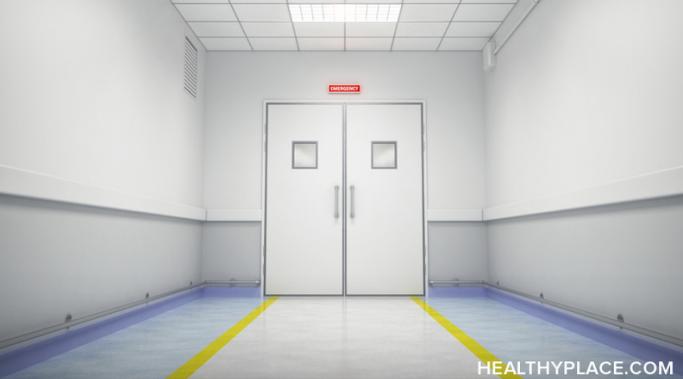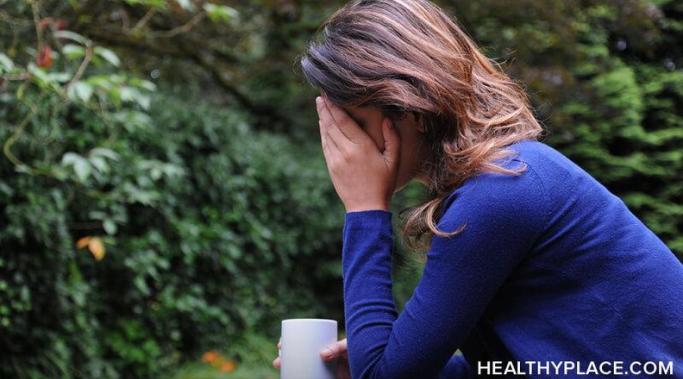There are three alternatives to self-injury that I have found helpful. Some of them are well known, while one is new to me (by which I mean I learned it two days ago). Self-injury borders on being an addiction, and sometimes we can feel obligated to self-injure. However, we need to remember that there are at least three alternatives to self-injury.
Recovery Issues
Is there a need to regulate group homes for adults with severe mental illness? Recently, I was living in a privately run group home, and to make a long story fit the word count, witnessed abuse and reported it. I'm now living in a transitional housing program for adults with mental illness run by a public community mental health center, and life is considerably better there. It made me think about the need to regulate group homes for the mentally ill.
What are the housing rights of people with mental illness? I was informed on Tuesday that I have to move due to my apartment building being infested with roaches, bedbugs, and mice (One of whom I've named Boo because he pops up when and where I least expect him--seriously, Boo, on my Wii U's power cord?). As I've searched for a place to live, I have discovered answers to the question "What are the housing rights of people with mental illness?" I discuss three rights in this video.
There are three lies rape victims believe, and these lies are common. One in six American women and one in 33 American men will be sexually assaulted at some point in their lives, according to the Rape, Abuse and Incest National Network (RAINN). That's just the ones who reported the rape, and RAINN estimates that 68 percent of rapes go unreported. I've heard that if you factor in unreported rapes, it's one in four American women and one in 10 American men. This raises the questions "Why not report it?" The simple answer is usually one of three lies that rape victims believe.
Ruminating can harm your mental health recovery because when you "go over in the mind repeatedly and often casually or slowly" you compulsively remind yourself of what is wrong. It's negative thoughts compounded by repetition and habit, making rumination dangerous. People with depressive and other mental illnesses often have a similar trait: many suffer from excessive and compulsive negative thoughts that distort reality. Thus, rumination involves an endless loop of negative thinking that can exacerbate depression and other mental illnesses.
I was admitted to a psychiatric hospital for the first time in college. Because I went to an out-of-state university, my family was unable to help, so a friend took me to a psychiatric hospital. Both my family and my friend had concerns: How long was I going to be there? What was going to be done to keep me from committing suicide? What exactly could I expect? Here are three things families and friends need to know about psychiatric hospitalization.
Mental health is related to the struggle for gay rights. Unless you've been living under a rock for the past few days, you've heard that my state, Indiana, has passed S.B. 568, the Religious Freedom Restoration Act, a law allowing people to discriminate against lesbian, gay, bisexual and transgender (LGBT) individuals in the name of religious freedom. On Saturday, I marched with about 3,000 of my new best friends to protest this, even though I am not part of that community. I marched because I understand that mental health has a connection to the struggle for gay rights. Here are three cases where the struggle for gay rights is directly relevant to mental health.
The lack of motivation that can be caused by depression and other mental illnesses can be debilitating. There are some things that are so important they must be done as soon as possible. But for those who battle depression, the lack of motivation can be an enemy that seems insurmountable at times (Depression Can Drain You of Your Will to Live). Here's what to do when depression causes a lack of motivation.
Some years ago, the notion of peer support for the mentally ill became an important component of mental health recovery. The mental health community has embraced peer support as crucial to mental health recovery but how valuable is it?
It's the opportunity of a lifetime. I'm in the process of raising money for a mission trip to Kenya. There are several obstacles, but I'm guardedly optimistic (How Not to Expect Too Much From Yourself). This opportunity--and the challenge that comes with it--made me think about healthy goals and reasonable expectations when recovering from mental illness. I've come to three conclusions.









